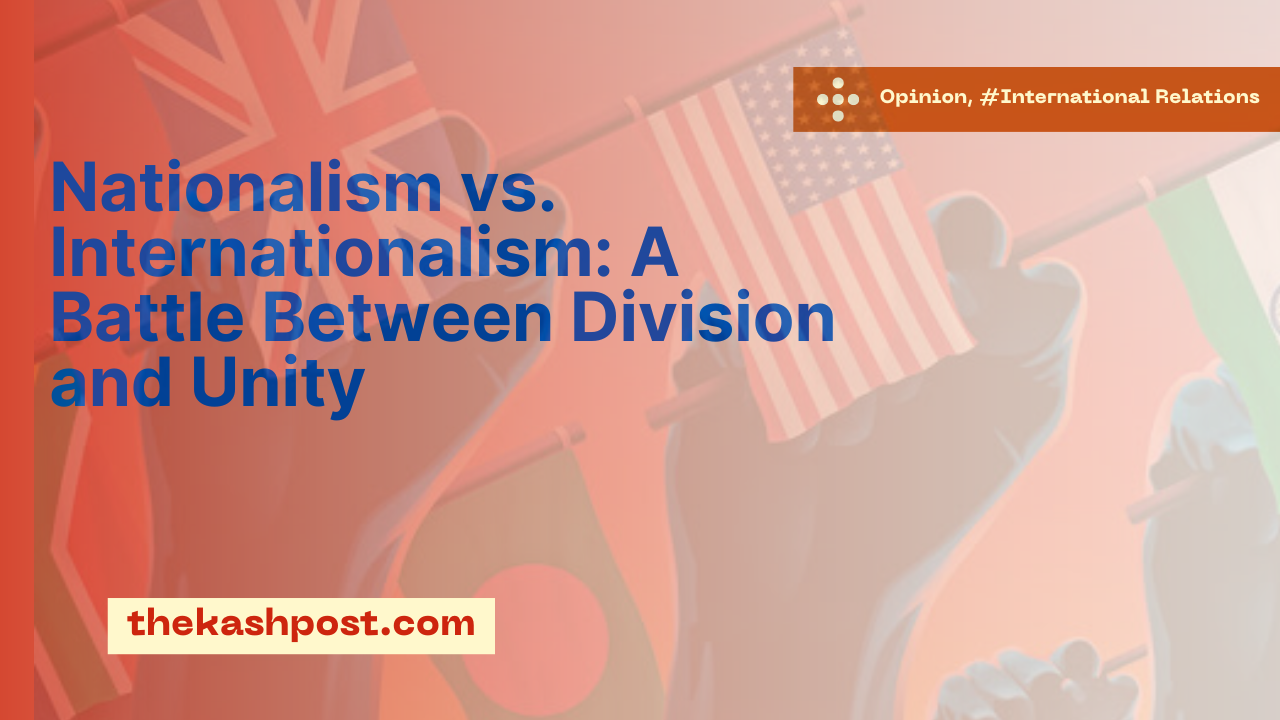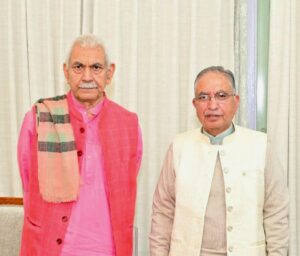Nationalism vs. Internationalism: A Battle Between Division and Unity

In an era of globalization and digital interconnection, the need for unity has never been more urgent. While many are familiar with the concept of nationalism—the pride and devotion one feels towards their country—fewer understand internationalism, a philosophy centered on global cooperation and shared human progress. Nationalism, when grounded in patriotism and a sense of civic duty, can serve as a positive force. However, when it escalates into blind superiority and antagonism toward other nations, it becomes dangerous. It fosters divisions, fuels conflicts, and justifies dominance over others. History shows us that fanatical nationalism has been the root cause of devastating global wars and atrocities. On the other hand, internationalism offers a peaceful alternative, encouraging nations and individuals to work collectively for the good of all humankind. It promotes mutual respect, diversity, and the idea of global citizenship—a concept increasingly relevant in our interconnected world.
The horrors of the 20th century are grim reminders of the destructive power of unchecked nationalism. Both World Wars were direct outcomes of aggressive national interests and rivalries. In Europe, nationalist ideologies led to the formation of hostile military alliances, setting the stage for continent-wide conflict. Leaders like Adolf Hitler and Benito Mussolini used racial and nationalist rhetoric to justify heinous crimes, including genocide and large-scale war. Hitler’s belief in Aryan supremacy and the idea of a Greater Germany resulted in the Holocaust, which took the lives of six million Jews and millions of others. Mussolini’s nationalist ambitions led Italy into fascist rule and military expansion. Western imperialism in the 19th and 20th centuries, too, was heavily driven by nationalist ideologies and the so-called “civilizing mission,” leading to colonization, exploitation, and cultural destruction. Nationalists have often claimed moral and racial superiority, using it as justification to rule and reshape other societies according to their interests.
Today, the legacy of aggressive nationalism continues to shape global conflicts. In modern China, the nationalist vision of the “Great Rejuvenation of the Chinese Nation” has sparked a strategic and militarized rise, raising alarm bells across Asia. Military tensions in the South China Sea, repeated threats to Taiwan, and violent border skirmishes with India in Ladakh reveal how nationalism can drive a nation toward confrontational policies. Similarly, the “America First” doctrine has reignited strong nationalist feelings in the United States, leading to controversial foreign interventions in Iraq and Afghanistan. These military actions, while framed as national security measures, were often motivated by geopolitical dominance and access to vital resources like oil. In South Asia and the Middle East, nationalist sentiment has led to deteriorating human rights and increasing instability. Israel’s expansionist policies and its ongoing conflict with Palestine are seen by many as nationalist endeavors rooted in historical grievances. The broader regional rivalries—between Iran, Israel, and Saudi Arabia—further deepen these divides, each nation seeking to expand its influence, often through proxy wars.
In stark contrast, internationalism emerges as a philosophy of inclusion, cooperation, and mutual upliftment. It transcends national boundaries and promotes the well-being of all people, irrespective of race, religion, or nationality. It is rooted in the belief that the world’s challenges—climate change, terrorism, economic inequality, pandemics—are too vast and interconnected to be solved by one country alone. Internationalism urges individuals to see themselves not only as citizens of their nations but also as citizens of the world. It fosters empathy, tolerance, and the celebration of cultural diversity. Educational and cultural exchanges, global humanitarian aid, and international treaties are practical tools that embody internationalist ideals. These mechanisms not only build bridges between nations but also reduce the chances of misunderstanding and conflict. Embracing internationalism can help eliminate the artificial North-South divide and promote fairness in global governance.
One of the most passionate advocates of internationalism was Albert Einstein, who saw nationalism as “an infantile disease.” He believed that lasting peace could only be achieved through the formation of a World Government—an institution that could unite humanity under shared values and laws. According to Einstein and other internationalists, forming hundreds of nation-states does not lead to peace; rather, it fosters competition, suspicion, and division. A global institution dedicated to justice, equality, and peaceful coexistence could better address global challenges. In organizations like the United Nations, we already see glimpses of what a more internationalist future could look like. Still, these bodies remain influenced by powerful national interests. True internationalism would mean reforming such institutions to ensure equal representation, mutual respect, and collective responsibility. Only then can we establish a balanced and peaceful world order.
Reflecting on our current global situation, it’s evident that wars often arise not from necessity but from the desire of one nation to overpower another—to steal resources, assert superiority, and suppress dissent. This “My Country First” mindset has led to environmental degradation, refugee crises, and endless cycles of violence. If global leaders embraced the idea of “My World First,” prioritizing humanity over narrow national gains, many of these issues could be resolved. Bad terminologies like “Dominant North” and “Subordinate South” would fade into history, replaced by a more equitable global outlook. National interests would be harmonized with international responsibilities. Foreign policies would no longer be built on fear and rivalry but on trust and cooperation. As individuals, we must push for this change—by electing visionary leaders, participating in global dialogues, and embracing global awareness in our daily lives. The future of our planet depends not on how strongly we defend our borders but on how courageously we expand our minds to include everyone across them.
Author: Farooq Lone with Hilal Zargar both can be reached via lonefarooqahmad80@gmail.com , zargarhilal3686@gmail.com respectively.




